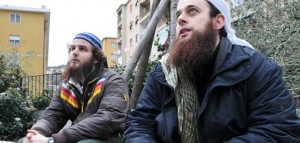Between 5,000 and 7,000 foreign fighters are estimated to have fought in Syria and Iraq and have been further radicalised, the director of the EU-wide police agency Europol said.
Rob Wainwright added that if they subsequently retraced their steps it was in order to carry out attacks, which made them a danger that needed to be faced up to and a difficult threat to identify. He was speaking at the cooperation talks in Rome between the chief of police and his counterparts from all 12 Balkan countries.
Mr Wainwright started by thanking Italy’s Interior Minister Angelo Alfano “for the leadership he has demonstrated at the European forum and for his positions on illegal immigration and terrorism.” He said Europol had coordinated thousands of inquiries over the last few years, setting up new cooperation centres, identifying criminals operating through illegal immigration and tracing foreign fighters travelling to Syria and Iraq, and who constituted a threat if they returned to Europe.
A cooperation platform had been set up involving 40 countries to protect citizens from threats of all kinds. Europol was seeking an even more effective response against terrorism and greater organisation. The situation was not the same as 9/11, he added.
Al-Qaeda was a well-defined group, with a command centre that no longer existed, but [ISIS] consisted of scattered groups of people moving inside European borders and were difficult to monitor 24 hours a day. Following the events in Paris, the various ministers had called for greater cooperation between police forces in Europe, and everything possible was being done to monitor those crossing the borders and to carry out all possible prevention measures.
agi.it



